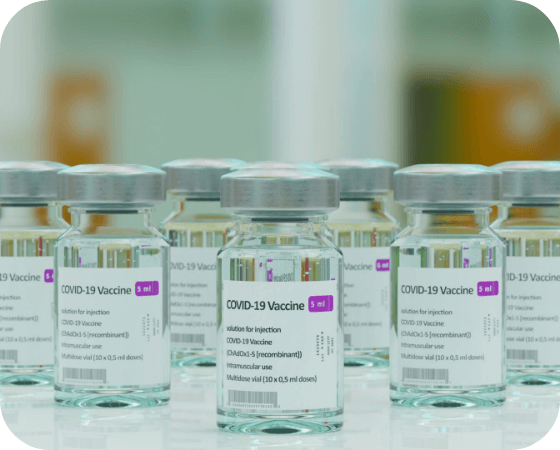Every year, you get your flu shot. Will the same be said for COVID-19 shots? No one knows for sure, but federal officials and public health experts are weighing in on whether certain people might need COVID-19 booster shots as soon as this fall. With questions about the longevity of vaccine-induced immunity and the potential for vaccine-eluding variants still unanswered, it certainly does not hurt to prepare.
What Is the Administration Planning?
On May 11, David Kessler, MD, Chief Science Officer of the White House COVID-19 Response Team, told a Senate panel that the Biden Administration is preparing for the possibility of booster shots for people who do not have a robust or long-lasting immunity, or if new variants evade protection from previously-administered vaccines. Kessler said the booster shots would likely be a third shot of Pfizer or Modern’s mRNA vaccine rather than a new shot tailored to emerging variants. He also confirmed that the booster shots would be free to Americans and funded by congressional appropriations through the end of Fiscal Year (FY) 2021. Since Kessler’s testimony, the Administration purchased 200 million additional doses of Moderna’s COVID-19 vaccine in June to vaccinate children or to serve as a booster shot for adults. Any decision to use booster shots would be up to the Food and Drug Administration (FDA) and the Centers for Disease Control and Prevention (CDC).
Kessler’s testimony was not the first time someone raised the possibility that people vaccinated against COVID-19 could need booster shots in the future. In February, Johnson & Johnson CEO Alex Gorsky said COVID-19 booster shots may be needed annually, like flu shots. Similarly, Pfizer CEO Albert Bourla said in April that people will likely need a third dose of a COVID-19 vaccine within 12 months of being fully vaccinated.
How Long Does Immunity from Vaccines Last?
Since the vaccines were just developed in 2020, experts say only time will tell how long protection from the vaccines will last. Of the few studies conducted so far, research from the New England Journal of Medicine published in April 2021 found Moderna’s COVID-19 vaccine can produce strong antibody protection for at least six months following the second dose. Pfizer also announced research findings in April confirming its vaccine’s efficacy six months after the second dose.
However, new research suggests it could be for a year or longer. A pair of studies published in May 2021 found that the B-cells of people infected with COVID-19 still continued to mature and strengthen one year after infection, suggesting some type of immune response. More recently, a study published in the journal Nature in June suggested immunity from mRNA vaccines could last for years.
What about the Variants?
However, many of these studies were conducted before the Delta variant became more prevalent. Public health experts say the Delta variant, which was first discovered in India in October 2020, is 43-90% more transmissible than previous COVID-19 variants, leading some to believe that currently-approved vaccine are less efficacious against the Delta variant. A recent study said the Delta variant could become dominant in the US by mid-July.
Fortunately, the vaccines still offer strong protection. According to a study by Oxford University researchers, two doses of the Pfizer vaccine appears to provide 79% protection against the Delta variant, compared to 92% against the Alpha variant, which is currently the dominant variant in the US, and was first discovered in the United Kingdom in September 2020. Since the Moderna vaccine uses the same mRNA technology as Pfizer’s, it can be inferred that two Moderna doses offer the same levels of protection as the Pfizer vaccine provides against the Delta variant.
But what about the Johnson & Johnson vaccine? Compared to its Moderna and Pfizer counterparts, the single-dose vaccine has been administered far less, meaning public health officials have little data regarding its effectiveness against the Delta variant. However, experts say a Johnson & Johnson vaccine is better than no vaccine at all, and that one dose is likely effective at protecting a recipient against serious illness or death. Additionally, former Senior Advisor to the COVID-19 Response Coordinator Andy Slavitt has said that recipients of the Johnson & Johnson could take a single mRNA booster shot now for added protection.
Nonetheless, just because the current vaccines remain effective against the Delta variant does not mean they are necessarily guaranteed to be effective against future variants. As explained by CDC Director Rochelle Walensky on June 22, the Delta variant represents a “set of mutations” of COVID-19, and future mutations could produce a variant that evades protection from vaccines. However, scientists say it’s unlikely a variant will arise that will make COVID-19 vaccines totally unless. While vaccines appear to offer diminishing protection from being infected from newer COVID-19 variants, they still appear effective at preventing hospitalization and death.
The Jury Is Still Out
The point of vaccines is to protect people from serious illness and death, and until fully vaccinated individuals are finding themselves with infections severe enough to require hospitalization, is it difficult to predict when booster shots will be needed and how often. In an interview on May 21, National Institute of Allergy and Infectious Diseases Director Dr. Anthony Fauci said the need for booster shots is still unclear. The CDC Advisory Committee on Immunization Practices reached a similar conclusion on June 24, saying there currently is not enough data to determine booster shots are needed, although the panel did not rule out the possibility of requiring booster shots if immunity wanes or new variants render existing vaccines less effective. Considering this risk, the evolving nature of the virus, and the pain the world has already experienced at the hand of COVID-19, the US government has every reason to prepare for the worst and continue this conversation around COVID-19 booster shots.

